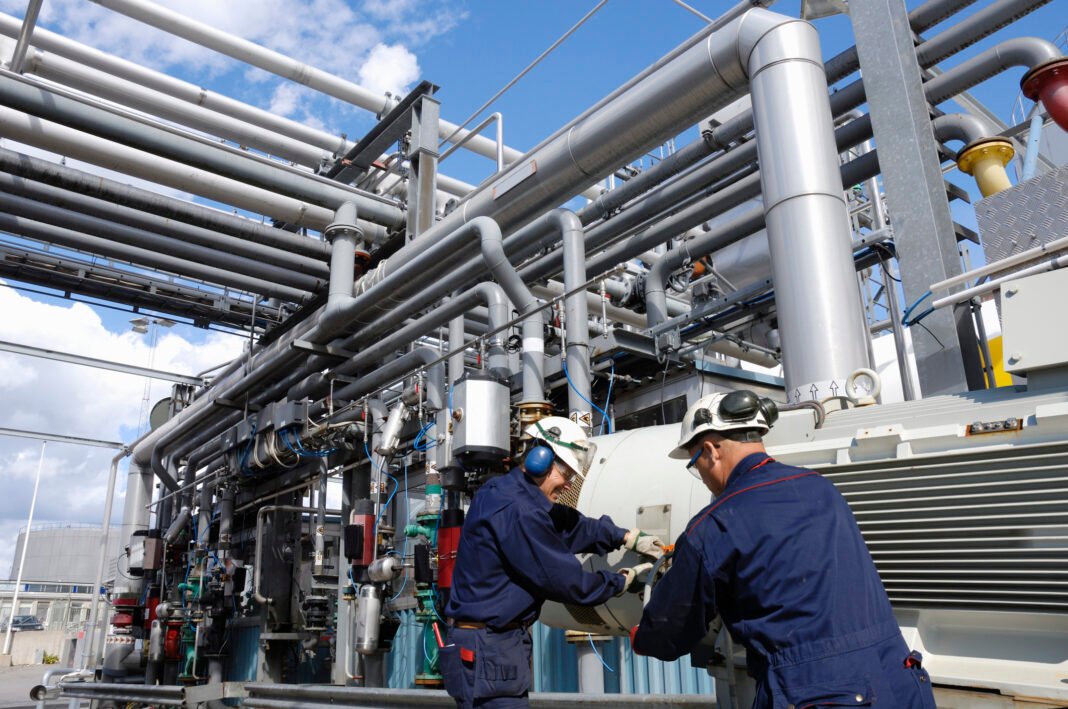The Iraq FCC project led by the South Refineries Company (SRC) is entering its final phase. Construction has reached 98%, marking a major achievement in Iraq’s refining industry. Officials expect phased operations to begin soon, with full-scale production following shortly after.
At the outset, Deputy Prime Minister and Minister of Oil Hayan Abdul Ghani visited the site to check on progress. He stressed the importance of the country’s FCC development for Iraq’s energy stability. He added that expanding local refining is key to lowering fuel imports and increasing self-reliance.
This FCC unit will refine 55,000 barrels of oil daily. The Iraq FCC project includes production of key fuels that meet global environmental standards. These include 4,300 cubic meters of Euro-5 gasoline, known for its cleaner-burning properties.
In addition to gasoline, the facility will produce 6,000 cubic meters of hydrotreated gas oil. The plant will also generate 300 tons of liquefied gas each day. These fuel products from the Iraq FCC project will support domestic demand and reduce reliance on external suppliers.
Moreover, the facility will deliver 4,500 tons of improved fuel oil and 400 tons of solid sulfur daily. These outputs will support industries inside Iraq and contribute to future exports. The FCC unit helps diversify Iraq’s energy portfolio.
SRC engineers have worked continuously to keep the project on schedule. Despite technical challenges, the team has maintained momentum. The Ministry of Oil continues to provide oversight and support to ensure the success of this critical refining project.
The Iraq FCC project also contributes to Iraq’s broader infrastructure plan. The country aims to modernize all major refineries and reduce the environmental impact of its fuel production. Cleaner outputs like Euro-5 gasoline are a step in that direction.
Additionally, the fuel production facility will create new jobs, particularly in southern Iraq. Local employment and supply chain growth are expected to rise as a direct result of this project. These benefits further reinforce its national significance.
Looking ahead, Iraq plans to replicate this success across other refining sites. The Iraq FCC project serves as a model for future developments that will help Iraq become a regional energy supplier.
In conclusion, the Iraq FCC project is nearly complete. It promises to expand production, reduce fuel imports, and move Iraq toward energy self-sufficiency and refinery modernization.
The Iraq FCC project led by the South Refineries Company (SRC) is entering its final phase. Construction has reached 98%, marking a major achievement in Iraq’s refining industry. Officials expect phased operations to begin soon, with full-scale production following shortly after.
At the outset, Deputy Prime Minister and Minister of Oil Hayan Abdul Ghani visited the site to check on progress. He stressed the importance of the country’s FCC development for Iraq’s energy stability. He added that expanding local refining is key to lowering fuel imports and increasing self-reliance.
This FCC unit will refine 55,000 barrels of oil daily. The Iraq FCC project includes production of key fuels that meet global environmental standards. These include 4,300 cubic meters of Euro-5 gasoline, known for its cleaner-burning properties.
In addition to gasoline, the facility will produce 6,000 cubic meters of hydrotreated gas oil. The plant will also generate 300 tons of liquefied gas each day. These fuel products from the Iraq FCC project will support domestic demand and reduce reliance on external suppliers.
Moreover, the facility will deliver 4,500 tons of improved fuel oil and 400 tons of solid sulfur daily. These outputs will support industries inside Iraq and contribute to future exports. The FCC unit helps diversify Iraq’s energy portfolio.
SRC engineers have worked continuously to keep the project on schedule. Despite technical challenges, the team has maintained momentum. The Ministry of Oil continues to provide oversight and support to ensure the success of this critical refining project.
The Iraq FCC project also contributes to Iraq’s broader infrastructure plan. The country aims to modernize all major refineries and reduce the environmental impact of its fuel production. Cleaner outputs like Euro-5 gasoline are a step in that direction.
Additionally, the fuel production facility will create new jobs, particularly in southern Iraq. Local employment and supply chain growth are expected to rise as a direct result of this project. These benefits further reinforce its national significance.
Looking ahead, Iraq plans to replicate this success across other refining sites. The Iraq FCC project serves as a model for future developments that will help Iraq become a regional energy supplier.
In conclusion, the Iraq FCC project is nearly complete. It promises to expand production, reduce fuel imports, and move Iraq toward energy self-sufficiency and refinery modernization.





